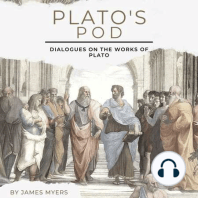111 min listen

Dialogue on The Critias: The Legend of Atlantis and the Quest for Divine Harmony
Dialogue on The Critias: The Legend of Atlantis and the Quest for Divine Harmony
ratings:
Length:
113 minutes
Released:
May 8, 2021
Format:
Podcast episode
Description
Was the cataclysmic disappearance of Atlantis and its wealth and beauty, nine millennia before Plato wrote about it, real? Or was Atlantis presented as a model and archetypical civilization, sending a humbling message to Plato's time and ours about disorder and discord that arises when the divine nature of the soul is diluted and obscured by lust for possessions and power? On May 2, 2021 participants from the Toronto Philosophy, Calgary Philosophy, and Online Rebels Meetup groups met in this live recorded discussion to consider these and other questions raised by Plato's Critias. We drew parallels to other dialogues of Plato, including Meno, Timaeus, and Phaedrus, as we considered the theory of forms, knowledge as recollection, time as a circular function, and other aspects of Plato's tale of Atlantis that has gripped the imagination since he presented the legend.
Released:
May 8, 2021
Format:
Podcast episode
Titles in the series (59)
Dialogue on The Timaeus: Creation of the Intelligent Universe by Plato's Pod: Dialogues on the works of Plato